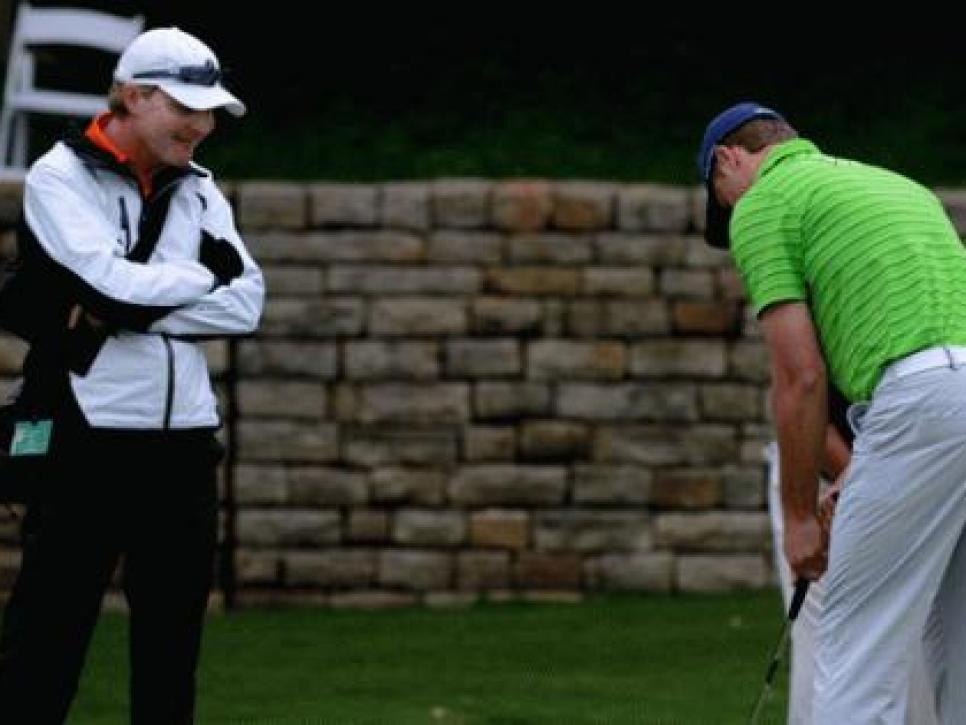News
Spieth's instructor since age 12 knew he had something special
AUGUSTA, Ga. -- Jordan Spieth has been coached by Cameron McCormick since age 12. McCormick is a sandy-haired Australian whose post is the Brook Hollow Golf Club in Dallas. His most famous student is President George Walker Bush, but there's no question who's his brightest.
The first lesson young Jordan had with McCormick took place not on the range, but in the pro's small office. McCormick is a voracious reader of scholarly texts on subjects like motor control and skill acquisition, and he likes to begin every relationship with a conversation. He asked the boy what he wanted to do.

"I'll never forget how he looked me straight in the eye and told me he wanted to win the Masters," McCormick said. "He didn't look especially strong, his build was average for his age. He'd had some recent really low rounds but his tournament scoring average wasn't remarkable. But the dead seriousness with which he told me that was like nothing I'd ever heard from someone his age."
McCormick next asked Jordan to rate the elements of his game. The boy said his ball-striking was best. He loved how he hit the ball.
Rather than help the boy hit it better by fixing some obvious idiosyncrasies (namely a weak grip and a broken left elbow at the top of the backswing that persist to this day) McCormick focused on nurturing that confidence. No sense breaking down for the boy how hard this game could really be. McCormick gets excited when he talks about "mirror neurons." Brain science is of course complicated, but essentially, mirror neurons are the parts of the brain that fire as we watch someone perform a physical movement. Scientists have discovered that a significant percentage of these neurons fire in the same sequence when we perform the action ourselves. In our neural pathways, we're always mirroring others. This has amazing significance. It helps explain why amputees feel relief from an itch in a phantom limb by watching another person scratch his leg. It helps explain why baseball players are more likely to get a hit if they've watched the batter before them get a hit. It suggests a level of human interconnectedness difficult to imagine, that we are almost like one mind separated by our skin. It also suggests we learn by watching in a way much deeper than ever thought. So what does this have to do with a 21-year-old carrying the 36-hole lead into the 79th Masters? Well, he's not dominating the Masters because he swings a club better or hits the ball farther than everybody else. Jordan's special strength is his mind. And the training started when he was very young.
While some coaches instruct students to focus by blocking out distractions and playing "in their own bubble," McCormick has always encouraged Jordan to look around.
"We've always spoken about the principle of association since he was young and playing in bigger stage events," McCormick said. This means paying attention to the good shots of others to increase the likelihood you'll hit a good shot. "We've also worked on building an imagery reel' of his past successes to draw back on to amplify his confidence." Again, the idea is the act of remembering a good shot can actually trigger your motor skills to fire the same way. Jordan Spieth is a cumulative 19 under par in six career competitive rounds at Augusta, a course where the common wisdom favors veterans. Why no long learning curve for the Texan? Here's what Spieth had to say: "I don't know. Seems like there's been quite a few guys that have had success at a young age here. I think Seve won it when he was 23, Tiger at 21. And obviously, I'm not comparing myself to those guys in any way." His brain is trained for the media center, too.